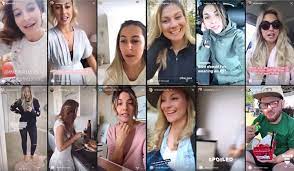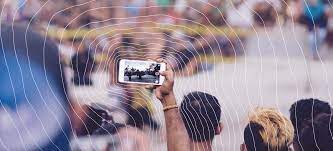The first thing mentioned in group 2 was the idea of Whistleblowing. An employee who whistleblower reveals information about illegal, immoral, illicit, unsafe, or fraudulent activity within a private or public organization. Some pros to whistleblowing include fighting corruption, earning financial compensation, and making sure wrongdoers are not rewarded. But the cons are putting the person's job or carer in jeopardy, the process of lengthy, and there is the possibility that the whistleblower’s claim may not be true and can have a negative effect on many people's jobs, time, and money. Whistling blowing can be a very risky job. An example, she talked about was Edward Snowden who was a former whistleblower. It gives them more access to private parts of people's lives in a negative way.
The next thing that was discussed in group 2 by Kendall was alternative media. Alternative media is sources that differ from more mainstream or dominant sources of media. They are isolated towards a certain view such as different political views. There are pros and cons that have to do with alternative media. There is a pro in that it allows individuals who feel unrepresented to speak up and express their opinions and views. A negative aspect of alternative media is that there is a risk of the spread of misinformation and fake news.
Then Erin went on to talk about mainstream media has a high influence on the internet today and is easy to access. Some examples are CBS, NBC, CNN, and more. These media sources are what people see first when they go to look at media for information. The government has some sort of power over these news sources.
Then as a class, we learned about Echo Chamber from Will. An echo chamber is an environment where a person only sees information that reflects their own opinions. To prevent this we can check multiple news sources, talk with other people who have different views, and make sure news isn't based on only rumors but actually contain facts. One thing that stood out to me from what Will talked about was when he discussed how echo chamber follows what sites we spend time on and give us more that are like them. This is not good because then people will only see information from their own views which will grateful affect them.
Going deeper Lacy taught us about online influencers. Online influencers use social media platforms to share posts and have collaborations with brands to make money. Online influencers must have a high following in order for brands to want to work with them. Some pros are being able to work from home and getting paid for doing something fun but some cons include not having a steady income or having to work when you don’t want to. Online influencers are changing our lives in different ways because of how we live according to digital media today.
Then Dylan went deeper into the idea of citizen journalism. Citizen journalism is written or put together by people who are not actually journalists. It is known as a different storytelling dimension because it is raw and widespread. In today's world, it is very easy because of how big the digital world is. This can be bad because people will often put fake news out there.










No comments:
Post a Comment